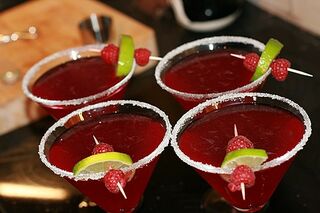Alcoholism
Why Are the Holidays So Hard for Those in Recovery?
A sober holiday survival guide
Posted December 1, 2021 Reviewed by Tyler Woods
Key points
- There are many reasons why the holiday season can be challenging, particularly for those in early sobriety.
- The pandemic has added more stress to the holiday season this year.
- There are many strategies that those in recovery have used to "survive" the holiday season sober.
This particular holiday season may pose greater challenges than those in the past for people in early sobriety from Substance Use Disorders (SUD). So, why is this season fraught with stress for so many? And what is different about this year?
Seeing family and friends can be a blessing, but it can also bring up old emotions and dysfunctional family dynamics. The ghosts of Christmas and holidays past may also haunt those in early sobriety and bring their substance use and “good ol’ days” to the forefront of their minds. Those with SUDs also have a far greater chance, statistically, of having first-degree relatives with addiction issues. So although this time of year can bring families together, substance use may also be part of the fabric of a family culture during celebratory events. Those showing up to social events sober can unintentionally hold a mirror up to those around them and lead to resistance and judgment. For individuals who have spent the past year surrounded by sober peers, having to spend this concentrated time home and with those who may not truly understand or respect their sobriety process may be stressful. People also tend to post more images on social media during this time of year, and it can lead those who are newly sober to feel left out, give them a sense that they are “not normal” or bring up fears of missing out (FOMO). Heading into the New Year can also be a time of reflection and even sadness about which direction life is going and which milestones a person believes they should have already reached.

The pandemic has added another layer of challenges during the holiday season this year. Many people have been more isolative throughout the past two years, as many holiday events were canceled last year due to COVID-19. This has led some to have rusty social skills and a quieter existence. This year may lead to a sense of obligation to resume past large holiday traditions, while some may truly prefer to attend smaller, more intimate social events. Given that the pandemic has been connected to an increase in drinking and substance use across the country, people may be using more heavily this season. Additionally, there has also been an abrupt increase in mental health issues and other life stressors that could lead some to self-medicate. Traveling may also be more pressured for some and may also be avoided by others. Finally, we are living in a heated political atmosphere and family events may elicit unwanted conversations and conflict about these topics.
Add these stressors to the steady flow of alcohol other substances present at many holiday events and individuals in recovery have the perfect storm for potential relapse.
Therefore, it is an important time for those who need help to reach out to sources of help, such as a therapist, attend mutual-help groups meetings, connect with sober friends, practice self-care, and prepare in advance for the season. The following is a holiday “Sober Survival Guide” to help you stay on your path to recovery:
- Let someone whom you trust at the holiday event know that you may need additional support during the gathering.
- Come up with a standard “party line” response as to why you are not drinking that may vary depending on the type of holiday event and if you want those in attendance to know that you are sober, such as, “I don’t drink anymore,” “I am not drinking tonight,” “I am on medication and cannot have alcohol,” “I am the designated driver tonight.”
- Have an escape plan. Figure out transportation options that will enable you to leave if you are feeling tempted to drink or are uncomfortable.
- Is a virtual holiday event an option?
- Ask another sober peer to be “on call” to check in with during the event for additional support.
- Find a tasty, non-alcoholic beverage you can drink that will give you something to hold and may prevent people from offering you an alcoholic drink.
- Volunteer and help others. Research indicates it can improve your mood.
- Be choosy about the holiday events you attend and avoid “people-pleasing” by saying “yes” to events that you don’t need to nor want to be at.
- Counteract false media and social media images of perfection and remember that every family has issues and to have some acceptance of family flaws.
- Increase self-care prior to and following events: get enough sleep, eat regularly, exercise, relax.
- Find new holiday activities and traditions that they may never have tried in the past which do not involve drinking alcohol (volunteer at a soup kitchen, go ice skating, have a sober get-together and gift exchange, see a movie, take a trip, etc.)
- Work extra hours if needed, in order to distract yourself.
- Attend extra mutual-help group meetings during this season (A.A. has “alcathons” that involve 24 hours of meetings, food, and socializing at designated locations on Thanksgiving Eve, Thanksgiving, Christmas Eve, Christmas, New Year’s Eve and New Year’s Day).
- Remember that there is life after the holidays.
- For mandatory in-person or remote work events, show up early, make the rounds to all the key people, and once the room has filled, leave early.
- Start a new holiday tradition or event that does not revolve around alcohol or substances.
It is most important to find the right balance for your individual needs during the holiday season. The biggest gift that you can give to yourself and your loved ones is that of sobriety.


